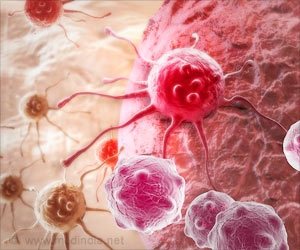“Targeting ACSL4 may help in understanding and expanding possible immunotherapy options,” said Weiping Zou, M.D., Ph.D., director the Center of Excellence for Cancer Immunology and Immunotherapy and lead researcher on this study.
Zou explains that this natural mechanism begins when activated T-cells release interferon gamma, a signaling protein. “It’s well known that interferon gamma is involved in anti-tumor responses,” said Zou. “But in this study, we defined a new way that it works.”
This study shows that combining interferon gamma with arachidonic acid, a fatty acid found in the tumor microenvironment, activates ACSL4, alters tumor cell lipid pattern, and naturally induces tumor cell ferroptosis. “ACSL4-dependent tumor ferroptosis is a mode of action of killer T cells,” said Zou. “Targeting ACSL4 sensitizes cancer to immunotherapy.”
Zou’s lab was the first to identify a role for ferroptosis in cancer immunity and therapy, highlighting the possibility of targeting this pathway to improve the effectiveness of immunotherapy in people with cancer. While immunotherapy has dramatically changed outcomes in melanoma, lung cancer and other cancer types, the treatments work for only about 30% of people with cancer.
“This study raises a lot of questions for us to keep exploring, particularly around the basic biology of cell ferroptosis, including the involvement of different fatty acids and dietary lipids, the different roles immune cells play in ferroptosis, and how to target ACSL4 and ferroptosis pathways,” Zou said. “For now, there are many unknowns, but we’ll continue to work in this space.”
Source: Eurekalert



